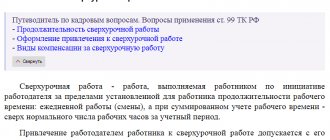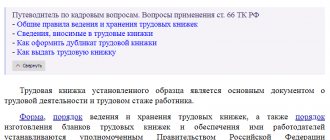Who has the right to connect
Organizations that own trunk networks charge a fee for providing water supply and sewerage services to the population. In addition, they bear responsibility and costs for their operation. Therefore, if a connection is necessary, the owner of the facility must necessarily agree on the technical feasibility of such a connection. The executive organization will control all stages of installation to the transit flow.
Connection nuances
Not all customers know that there are certain nuances that the parties to the agreement must comply with. This:
- if there are technical capabilities for connection, the refusal cannot be legal, it can be challenged;
- if there is no technical possibility, water utility engineers must draw up an individual project for the insertion in a different way;
- payment by the customer must be made within the established time frame;
- An agreement is drawn up between the parties, which specifies the timing of the work.
Important! If the customer fulfills the terms of payment, and the contractor violates the terms of the work, then it is quite possible to collect a penalty from him. But only in court.
Payment under the agreement is made according to the standard scheme. The agreement states that the customer is obliged to pay the fee as follows:
- 35% of the price of work within 15 calendar days after signing;
- another 50% within 90 days while the work is underway, but no later than when it is actually completed;
- the remaining 15% within 15 days after signing the acts.
The acts are a guarantee that all technical conditions are met, and water will be supplied to the house immediately after funds are received in the water utility account. Therefore, all copies of payment documents must be kept. In the event of litigation, they will be a guarantee of the customer’s fulfillment of its obligations.
What is considered illegal tapping?
The legal interpretation of the concept of “unauthorized connection to the water supply” defines the use of the service without formalizing an official relationship with the water supply and sewerage enterprise (hereinafter referred to as the water supply and sewerage system) or technical errors in complying with the regulations (RF Government Decree No. 167 of 02/12/1999). This:
- re-equipment of load-bearing drains, inlets, and other structures;
- dismantling and replacing meters for personal interests;
- lack of contractual relations with the service organization.
Unauthorized use of water supply systems is a violation in which the supplier has grounds to file a lawsuit to recover damages (Article 7.20 of the Code of Administrative Offenses of the Russian Federation).
Rules for connecting to the water supply network
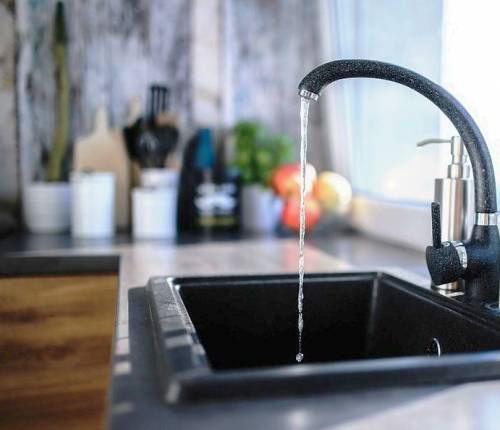
Since the operation of the systems is controlled by water and wastewater services enterprises, the installation of new branches is the functional responsibilities of the service specialists. Participation in the procedure is possible by prior agreement with the relevant supplier organization. The stages of legal tie-in are as follows:
- conclusion of an agreement for the provision of services, payment;
- carrying out work - laying pipes according to the project, etc.;
- input into the main system using technical devices and with the participation of specialists;
- installation and verification of water meters.
To minimize conflicts between the water and utility sector and the consumer in matters of compliance with operating rules and compliance of measuring instruments with metrological characteristics, the control procedure for such devices is mandatory in Russia. Carried out according to the requirements:
- Federal Law of the Russian Federation dated June 26, 2008 No. 102-FZ (as amended on June 23, 2014) “On ensuring the uniformity of measurements”;
- Decree of the Government of Russia dated 05/06/2011 No. 354 (as amended on 03/27/2019 as amended on 07/10/2018) “On the provision of utility services to owners and users of premises in apartment buildings and residential buildings” together with the “Rules for the provision of ...”.
- for subscribers of the capital, additional clarification is contained in the Moscow Government Decree No. 831-PP dated July 27, 2019 “On amendments to the Moscow Government Decree No. 77-PP dated February 10, 2004.”
Now the check is carried out according to the recommended instructions in the technical data sheet of the meter. Typically, this is every 4 years for a hot water meter, 6 for cold water. During operation, subscribers must strictly follow the rules for the general use of public water supply and sewerage systems. Prohibited:
- involve persons who do not have permission to carry out the relevant work;
- include in the installation devices that do not comply with the technical regulations for insertion;
- make any changes related to the operation of meters and other control and measuring devices.
Ignoring the above conditions may result in adverse consequences:
- reducing pressure in pipes on all floors of housing construction;
- due to the absence or insufficient disinfection of water - deterioration of its drinking properties;
- improper installation will affect the operation of the entire system as a whole;
- the occurrence of disagreements between subscribers (flooding, etc.).
Compliance with safety precautions is an indisputable condition at all stages of equipment operation.
What are the consequences of an unauthorized connection?
Unauthorized illegal tapping into a water supply is a reason for bringing a person to administrative punishment. Liability may also be criminal if the offense is regarded as theft (Article 165 of the Criminal Code of the Russian Federation).
To the water supply
An illegal connection must be restored to its original condition. The fine for unauthorized water connection is provided for by Decree of the Government of the Russian Federation No. 776 dated September 4, 2013, containing the “Rules for organizing commercial accounting of water and wastewater,” as well as Art. 7.20 Code of Administrative Offenses of the Russian Federation. Can make up:
- citizens 1000–1500 rubles;
- officials up to 3 thousand rubles;
- legal – up to 30 thousand rubles.
The repayment amount for the resource used is determined by the throughput of the pipe within 24 hours at a speed of 1.2 m/s. For example, with a diameter of 15 mm for 30 days, the reimbursement will be approximately 8626.89 rubles. (S = P*D*V, where P is the pipe cross-section, m3; D is days in the past six months; V is the cost of m3).
Moreover, the violator will be required to pay for the dismantling of the installed equipment for illegal water withdrawal and for the subsequent connection procedure. A supplier who has suffered material damage has the right to assert his claims in a criminal case, and then the fine for tapping into the water supply can be assessed for 3 years.
To the sewer
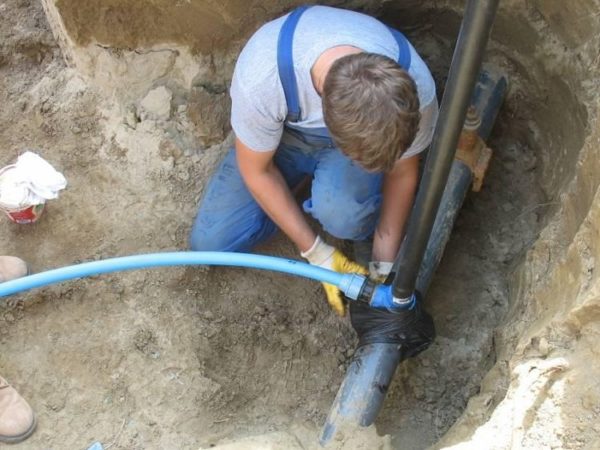
Another problem for water and wastewater services. Water disposal according to the “Rules for the Use of Utility Systems” is the organization of delivery of waste from the subscriber to the place of treatment. Illegal tapping into sewers is another type of violation of the regulations for the operation of main pipelines. The legal framework for regulating the problems of unauthorized installations, penalties and compensation amounts is the same. However, in a sewer situation, violators are required to:
- based on clause 34 of the “Rules for the Provision of Public Utilities...” dated May 23, 2006, as well as Decree of the Government of the Russian Federation No. 307, pay for uncoordinated operation of the system for 6 months, starting from the moment of discovery or the last inspection (but up to 3 years);
- dismantle the unauthorized part of the drainage system.
A fine for illegal tapping into a sewer “results” not only in significant financial, but also reputational losses for the owner. Violations identified during inspection raids are recorded in the conclusion of the visiting commission.
The fine for unauthorized connection to water supply and sewerage systems will increase 10 times
A proposal to strengthen liability for illegal connection to water supply and sewerage systems is being considered (Bill No. 1146924-7)
Initiators
The amendments were prepared by deputies from United Russia
Deputies of the State Duma S.V. Bessarab, I.M. Guseva
Contents of changes
The bill significantly increases penalties for unauthorized connection to water supply systems. Thus, a fine for citizens can range from 10 thousand to 30 thousand rubles (currently the maximum fine is 1.5 thousand rubles).
For the full text of the amendments, see below.
Rationale
The Explanatory Note states that illegal tapping into centralized water supply and (or) sanitation systems creates additional unaccounted for loads, increases the costs of local governments and organizations for providing water supply and sanitation, and negatively affects the quality of operation of networks and structures. Accordingly, payment for negative impacts by illegal users is not made.
Text of amendments
Article 7.20. Unauthorized connection to centralized water supply and sanitation systems of the Code of the Russian Federation on Administrative Offenses
1. Unauthorized connection (technological connection) to centralized water supply and (or) sewerage systems, as well as unauthorized withdrawal of water from a centralized water supply system or unauthorized discharge of wastewater into a centralized sewerage system without connection (technological connection) to such systems - entails the imposition of an administrative fine for citizens in the amount of ten thousand to fifteen thousand rubles; for officials - from thirty thousand to eighty thousand rubles; for individual entrepreneurs - from fifty to one hundred thousand rubles; for legal entities - from one hundred thousand to two hundred thousand rubles.
2. Repeated commission of an administrative offense provided for in Part 1 of this article shall entail the imposition of an administrative fine on citizens in the amount of fifteen thousand to thirty thousand rubles; for officials - from eighty thousand to two hundred thousand rubles; for individual entrepreneurs - from one hundred thousand to two hundred thousand rubles; for legal entities - from two hundred thousand to three hundred thousand rubles.
Materials for the bill
You can familiarize yourself with the bill and track its consideration by following the link
Other
Act on unauthorized connection
Based on clause 63 of the Rules for cold water supply and sanitation, approved by Decree of the Government of the Russian Federation dated July 29, 2013 No. 644, when discovering “new” connections, specialists must give a written opinion. The document will become the basis for further resolution of issues regarding sanctions. The act of unauthorized connection to the water supply contains the following information (see sample document below):
- timing characteristics;
- property location;
- data of inspectors;
- identified facts of violation;
- information about the owner;
- description of the location of the illegal tapping;
- information about the supplier organization to whose main line the branch was connected.
The document is signed by officials as well as the consumer. Based on the presented power of attorney, the owner’s rights can be protected by his representative. If there are no persons being checked, neighbors are brought in to attest to the fact. The violator is notified by letter.
Documents for legal insertion
The following may act as customers for connection to the water supply:
- institutions whose scope of activity is resolving issues related to the management and disposal of housing stock. They must legally be in charge of engineering and technical infrastructure facilities;
- enterprises authorized to provide water supply services to the population living in a municipal, public or departmental fund;
- associations of homeowners in multi-storey buildings and various partnerships that have the right to manage the housing stock.
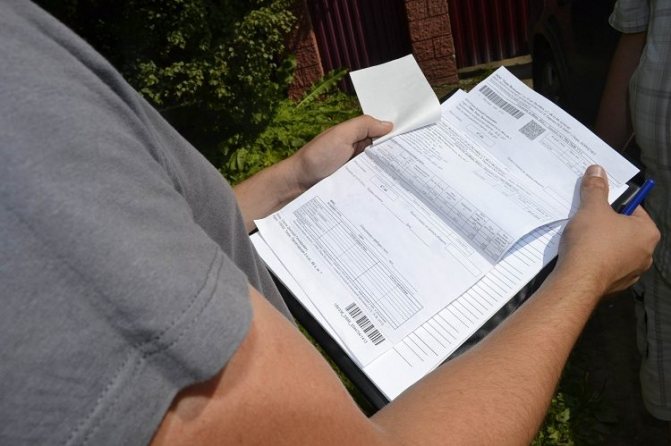
To legally connect to the water supply, you need to have a package of documents required by Vodokanal.
To legally connect public water supply equipment - repurposed, reconstructed, expanded or new - the subscriber must have the following documents:
1. Specifications issued by the water and waste management services of your district for connection to water supply systems. To receive them, the customer must submit an application to this enterprise and attach to it, in turn, the following package of documents:
- application for the development of technical specifications (three copies and the original);
- seven copies of the situation plan;
- two copies and the original of the projected balance of water consumption and wastewater disposal;
- documents confirming the authority of the head of the organization. These are the order of appointment and the order of taking office.
- constituent documents of the customer enterprise. Only two copies will be enough;
- urban planning plan of the site;
2. Confirmation by local authorities that the subscriber has a valid conclusion from the regional water supply and sewerage system that the technical capabilities of connecting to the water supply and sewerage system exist.
If the customer is a private person, in addition to the above documents, he must provide an unexpired passport of a citizen of the Russian Federation.
Is it possible to avoid responsibility?
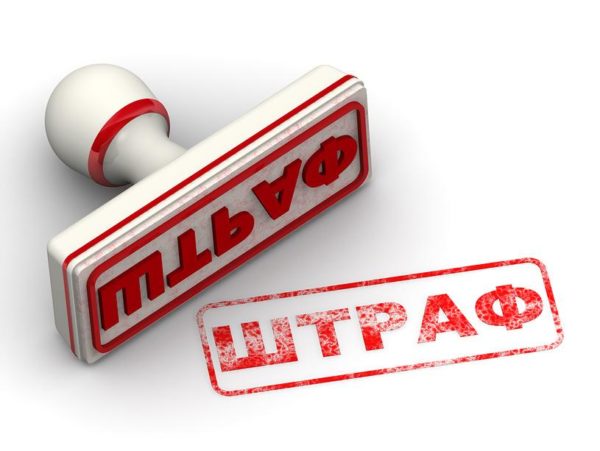
Let's look at the main options.
- Legalize illegal tapping - the monetary costs will be less than the amounts for compensation of losses and repayment of fines.
- Eliminate the consequences.
- The consumer had no idea about the illegal diversion, or, despite the unauthorized connection, continued to pay in full.
In any case, illegal savings will not bring the expected result.
How to legalize a tie-in
When contacting the territorial subscriber department of the water and utility service organization, write an application and submit:
- identification document;
- confirmation of ownership of the home, registration certificate;
- technical information on water supply.
If the tie-in is carried out without violating SNiPs, its dismantling does not need to be done. The next step will be collecting the required documents (permits, approvals, certificates). To save time, money and nerves, you can contact a private company that provides paid services for all types of installation of external water supply and sewerage networks. Usually an application is written to connect a new section of the line and design documents are drawn up. Getting rid of the problem is a matter of time.
Legalization of tie-in
To avoid a fine for tapping into a water pipe, there are two ways:
- do not make illegal connections. If an unauthorized connection has already been made, eliminate it;
- legitimize the tie-in.
Good to know! Legalization is a procedure for officially registering a connection carried out without the permission of utility services.
For this purpose, you must contact the water utility customer department, bringing with you the following documents:
- passport;
- a certificate confirming ownership of an apartment or registration certificate for a house;
- all available technical documentation for water.
If the connection to the water supply system was made without violating SNiPs, its dismantling may not be necessary. However, you will still need to collect a package of necessary documents (permits, approvals and all certificates). You can do the following: contact one of the cooperatives that operates under your territorial water utility. These companies provide paid services to the population for the installation of external water supply and sewerage networks, including insertion into central pipelines and sewers. Explain the situation to the head of such a cooperative. And finding a common language with a business person will not be difficult. Such organizations, in fact, were created to officially solve difficult problems. There you will be assisted in drawing up an application for inserting a supposedly new line, and will be helped with the project. But, of course, not for free. However, given the size of the potential fines, this will be a cost-effective solution.
Arbitrage practice
Analyzing the diversity and multiplicity of decisions made by Themis authorities on the problem under consideration, we can say with confidence that citizens are increasingly trying to shift their financial problems onto the shoulders of others. Utilities often play this role. Judicial practice clearly shows the final accrual of considerable fines, and sometimes criminal liability for unauthorized connection to the water supply. But it is not always possible to take a more meaningful look at the situation and bring some sense to our compatriots.
Results
The standard for losses (leakages) in Russia ranges from 20 to 25%. And water is a strategic resource, and you need to pay for it. Therefore, it is so important to maintain a balance between the volumes of its production and sales. To solve this problem, temporary moratoriums are being introduced in many regions of the country. Subscribers who take advantage of the grace period and enter into agreements will not pay for the service they have already received. Moreover, in order to fall under its action, one application from the subscriber is enough, and documents can be collected later.

